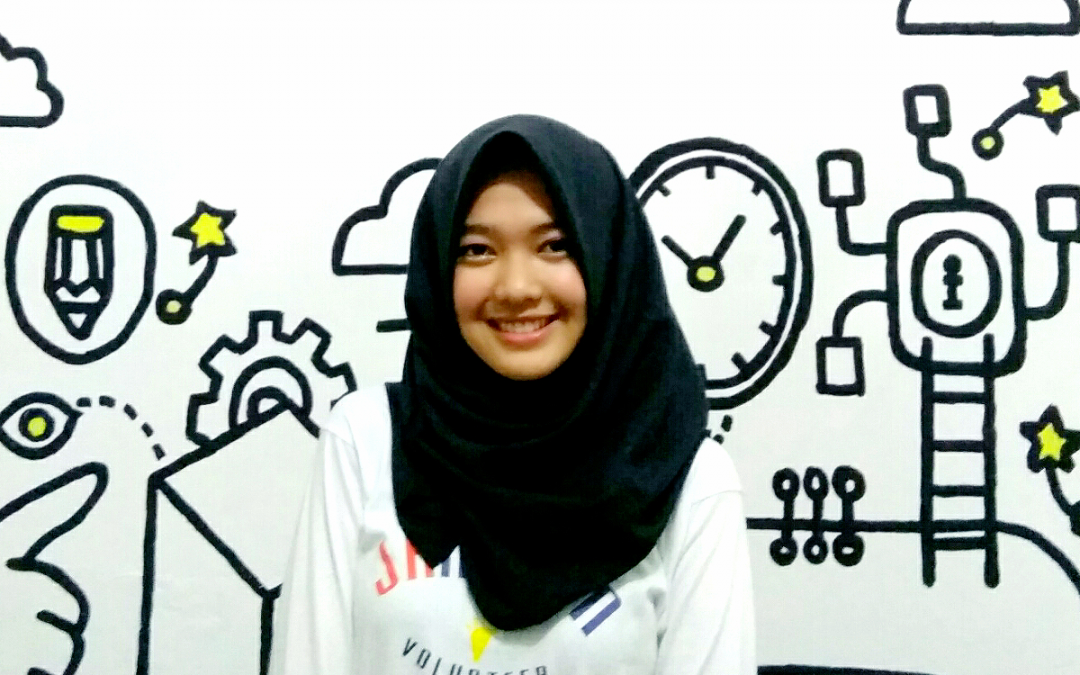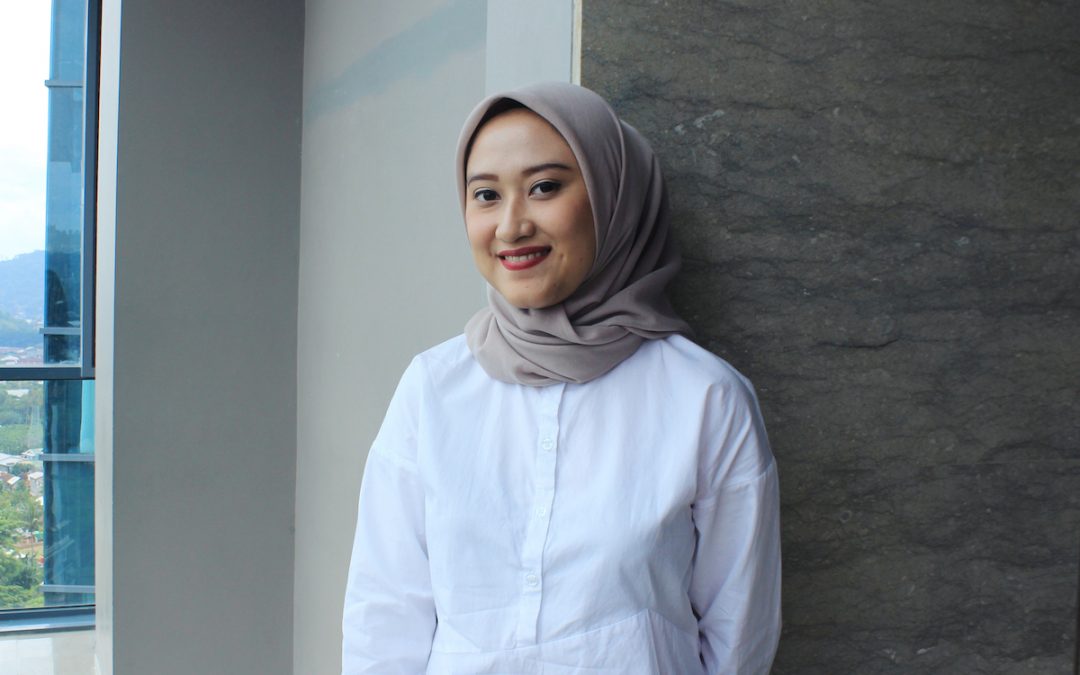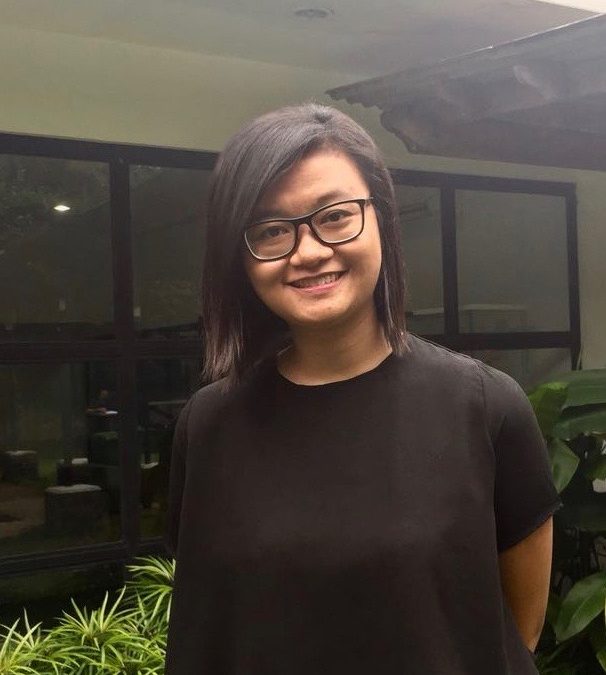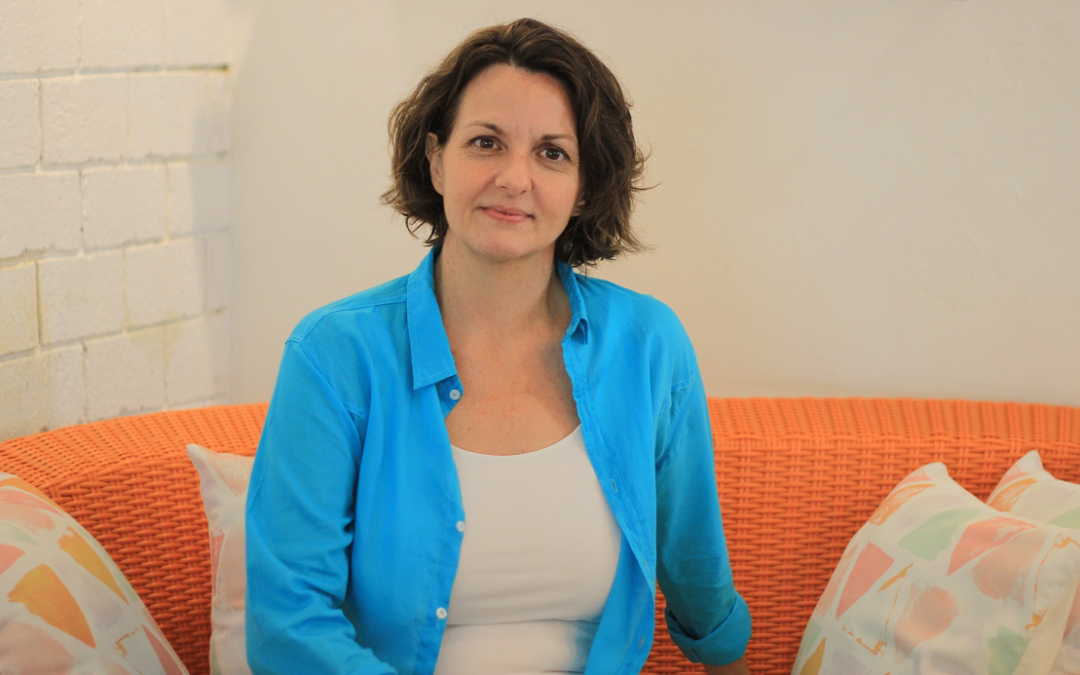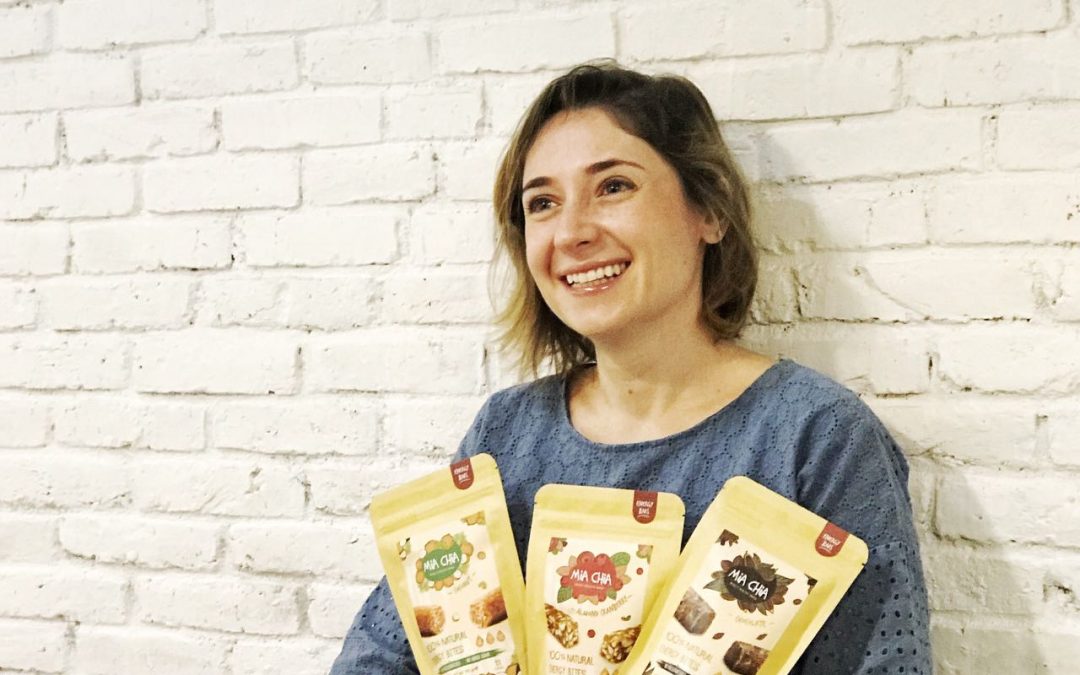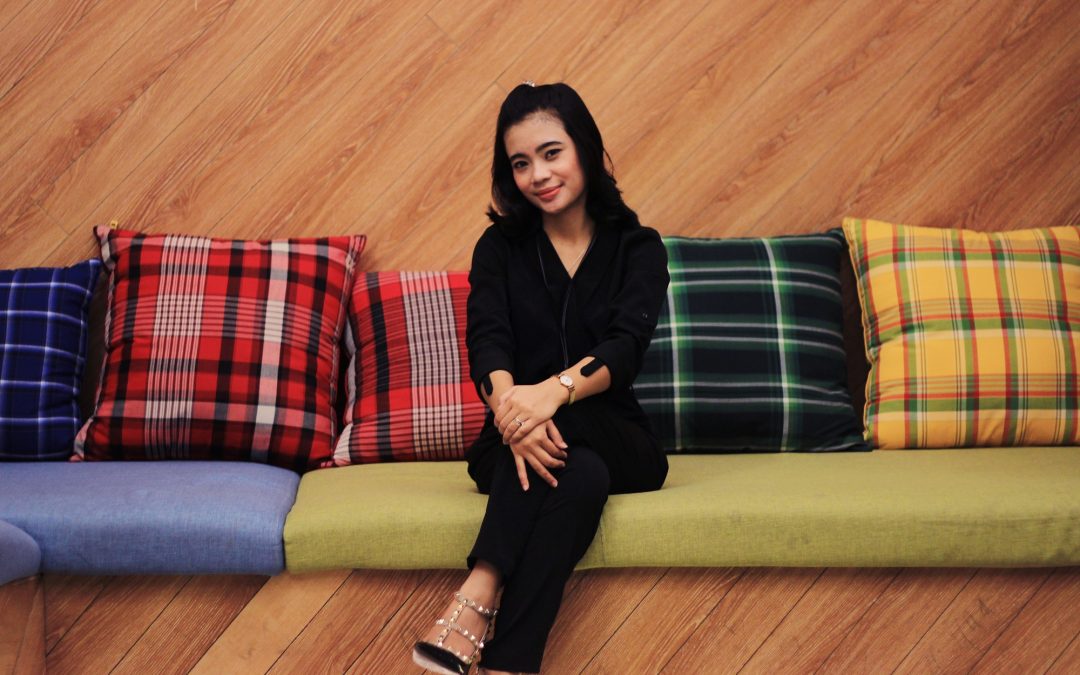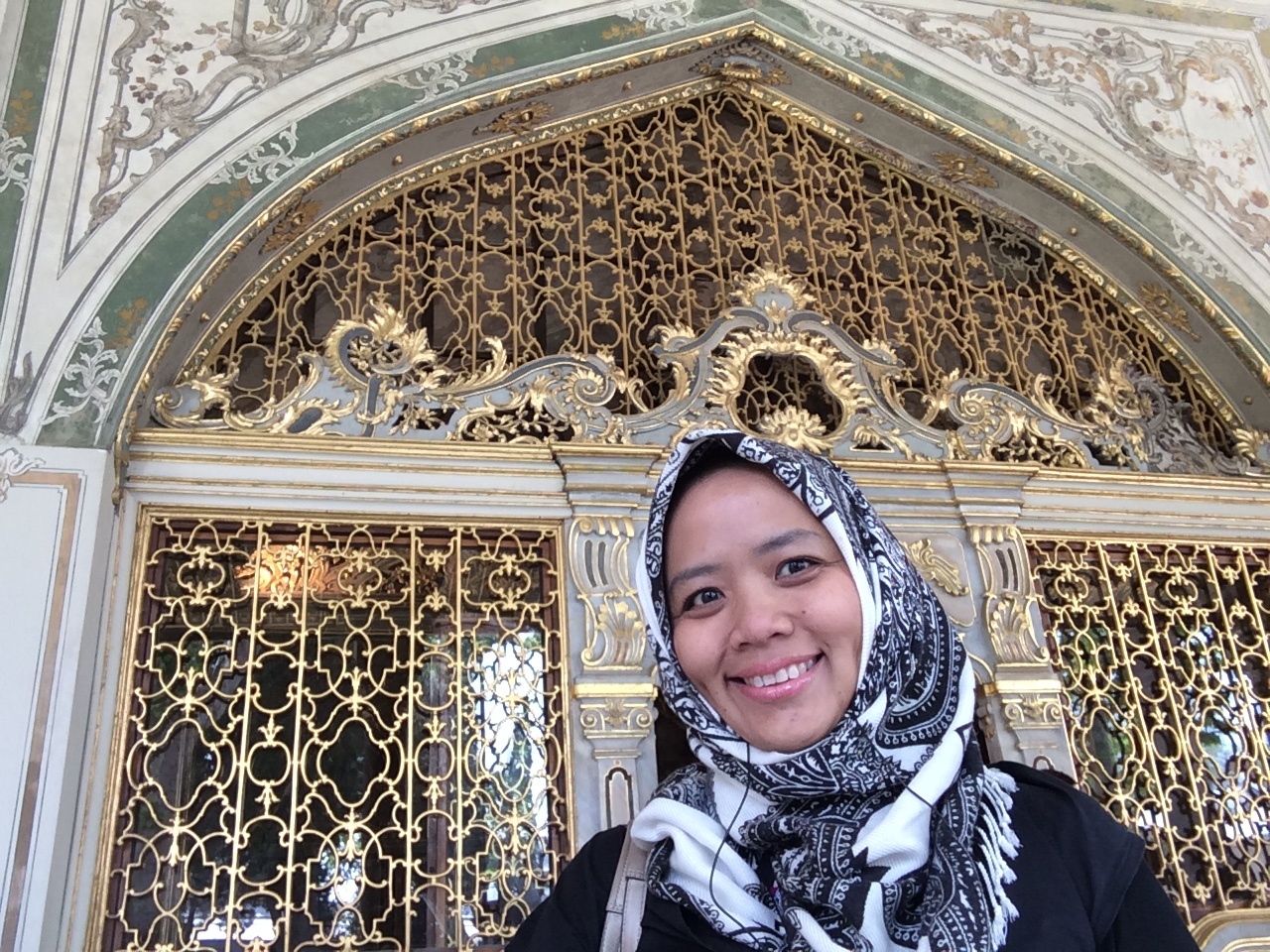Tell us a bit about yourself.
My name is Crystal Widjaja and I work at GO-JEK Indonesia. I am purely a data person; what that means is I’m constantly look at trends, metrics, KPIs, and creating new KPIs so that the business can grow and evolve in its strategy and decision-making process.
What inspired you onto this data science path in the first place?
A lot of people would look at my history and say, “Hey that’s not very data science. That’s not very ‘data’ at all.” I actually graduated in political science – in empirical methods – but secretly I’ve always been very data-driven. The reason why I majored in political science was because I wanted to do polling statistics: understanding the correlations between different types of demographics, how they vote, and how, say, a three-party system creates different results from a two party system. These are the kinds of things I was really interested in from the data side.
There’s a lot of manual data collection in political science, and in research in general. Learning how to optimize and create good data structures was just a natural evolution. And from there – given that I’m a lazy person sometimes – I learned how to write code, like Python, and SQL. That just leverages your potential so much more, right? A lot of that has been very useful to push me into data science and business intelligence.
What got you to take the initiative to write code? How do you recommend a beginner start learning?
For me, it was actually working on annoying manual problems that led me to start learning VBA (Visual Basic for Applications) on Microsoft Excel. From there, I figured that if I could tie together Python into VBA, I could be even more productive. A lot of GO-JEK is the same way in that we are very iterative. We’ll ask ourselves, “What’s the easiest thing that’ll 10x us?” and once that 10x is done, we’ll go back and ask “What’s the next thing that’ll 100x us?” So that iterative thought process of, “Okay, how do I do 80% of the work or get 80% of those gains right now?” is in our company culture and fits me very well.
What did you use to learn those programs?
I’m actually very good at Googling – I think that’s an underrated skill. (laughs) But actually there are quite a few resources on W3Schools for SQL, for example. Udemy and Coursera have great R programs. All of these free resources can actually get you about 90% of the way. That other 10% of mastery is really finding a challenging problem that you can work on and practice with.
And what was an early challenge that propelled you forward?
One of the things I was working on at the time was research on different startups. I wanted to see what people were saying about startups. I had a list of startups that I had captured from Crunchbase, and I wanted to generate the most recent news article about each one. So if I were to go into Google and press search, using time as a parameter, how could I automatically get that first result? So I actually did that on Excel VBA with a Python script as well.
Pivoting towards more startup questions, what are some key differences you found between US startups and Indonesian startups?
I think what I have seen is that people here are much more passionate and much more interested to learn. There’s a lot of active learning that happens in Indonesia, especially at GO-JEK. Here, we encourage people to seek out problems and solutions themselves, rather than waiting for someone to teach them and waiting for someone to train them directly. It’s a lot more of, “Hey, there are these problems that no one has ever worked on before. Are you interested in picking these up as challenges that you want to prove yourself with and identify best practices on your own?”
In the US, I’ve found that there’s a lot more passive learning where the best practices are all around you. You raise your hand and there’s a mentor right there next to you. That passive learning, while great (you do learn a lot), doesn’t push you as far. The challenge in Indonesia and the challenge for startups in general is that we have to pave our path by ourselves. It’s very new.
And that’s why this younger generation of students really excite me. I absolutely love having recent grads join us; they are the pioneers that don’t realize how hard it is to do something, so they will work the hardest to accomplish these things.
How do you see Indonesia and its nascent startup scene versus Silicon Valley? What kind of potential do you see? What do you find similar?
That’s a really great question. From what I see in Silicon Valley, a lot of the really meaningful things have already been done. What’s being created there are like assisted living apps for millenials. That’s not really inspiring; it’s not really impactful.
What I see here in Indonesia are people really working to solve hard, fundamental problems that improve the lives of people around them across all levels. There is that expectation that Indonesia will become that next tech hub. I think we have a lot ot live up to, but I do see there are a lot of new organizations, new startups — there’s so many meetup events that are extremely inclusive. The ones I had attended in Silicon Valley were actually less inclusive because they had that senior mentality, whereas here it seems like everyone is so willing to pull each other up that ladder rung. I actually think we will do much better because of that inclusivity and that diversity of people.
What are some obstacles you see?
Traffic, for one – like how do you get all these people to a meetup and start at the right time? That’s actually a literal and logistical fundamental challenge. Even we at GO-JEK face this. For instance, at AI Saturdays we start at either 10:00AM or 10:30AM; it really just depends on whether or not it’s raining. Hopefully as we develop that infrastructure and increase that ability to connect each other, we’ll actually enable other people to meet up more frequently and be more dependable.
A huge obstacle in the tech scene here is that it’s quite difficult to source developers for startups. How do we make Indonesia a more attractive place for quantitative talent in fields such as data science and technology, and how do we attract girls into that field?
I think there are a lot of junior developers, and so the question is: how do we create a mentorship system so that we continuously refine and polish the existing skillsets of the people here? I know there are a lot of beginner meetups and beginner events, but seeing more experts put together a more polished curriculum, that’d be interesting. I know Hacktivate is great and there are a couple of other coding schools that are developing these best practices. I think in time this will happen, it’s just that we started a bit later than Silicon Valley. But we will actually, I think, surpass them.
Yes, there aren’t that many female developers. I think that this partially has to do with the expectations that young women have as they’re growing up. They currently see a lot of male developers. There aren’t a lot of good examples of females in tech for them. I personally would like to spend a bit more time ensuring that female developers are paid attention to, are given that exposure. All female developers have this responsibility to just be present, to just stand out there. And being present inspires that younger generation. Although you may not see that impact for several years, you need to influence that generation to see that this is actually something that they can do.
Have you faced any unique challenges as a female in data science?
I work mostly in business intelligence, but I do sit with the data science teams as well. I’m actually blessed that GO-JEK has such an innovative and inclusive culture. Our company is so diverse that I’ve never felt prejudiced, actually. And that’s what makes GO-JEK great. Our attitude is about inclusivity and solving difficult problems. And that diversity of thought across gender, ethnicities, and backgrounds actually allows us to come up with more innovative solutions than other people normally would. I love the fact that we are a very distributed and culturally dispersed team because I’ve heard interesting insights that I never would have without that diversity.
How would you recommend people deal with those workplace situations if they do face that?
What I can talk about is what has been really successful at GO-JEK. For us we are very open. We have leaders who actually push feedback sessions. They actively tell us, “Hey, make sure you take an hour of your time every week with your team to do brown envelope sessions. Write feedback.” One of our 10 values is actually that criticism is a gift. Being able to give helpful feedback and tell people, “Hey that isn’t something we really value in our culture,” or, “Hey, that tone you took wasn’t really correct” — that kind of openness allows us to communicate very openly and fix any problems we might have. A lot of these situations perhaps could be handled with more transparency or with better policies in place, and I think GO-JEK has a very safe structure. You could tell people things and know they will receive feedback well.
And for those whose companies don’t necessarily share GO-JEK’s culture?
It’s difficult for me to say that there is any universal solution, but I would say that progress has to start with yourself. Be the progress you want to see. If I see injustice, I will actually call it out. That is personally important to me. Ask yourself, “What are your virtues, what are your values,” and act on them on a daily basis. We can’t expect other people to take responsibility for the injustices we see; if you see a problem and you have the power to make a difference, then why not go and make that difference?
And I see around the world, a lot of people are picking up on that sentiment. There’s a lot of women’s marches — in Jakarta, for instance —
Yes! And it all starts from one person, right?
Yes! And so how can we keep the momentum going?
Communities are one of the most important things that I think really sets Indonesia apart from other places. The amount of community here already allows us that freedom. If someone in your community is hurting, your community here is usually small enough and know each other well enough to all stand up and fight for you as well. I would say, build a community, rally together for social causes, and ensure that people communicate well. That is probably the best way.
What do you think is the source of the gaps that exist in terms of resources and support for women entrepreneurs in Indonesia? What can be done to address them?
Interesting. I think a lot of these gaps stem from inherent bias. When people grow up seeing that all of their leaders are male, they internalize this and assume this to be the right approach to take. So they promote more men, they raise more funds for men.
For this, I appreciate that there are actual foundations that recognize the need to reverse that discrimination with women. FemaleDev is a great example of this. But beyond that, what can we do? It’s more about creating better systems for performance evaluations, right? Understanding that what a person does should be reflected in their performance reviews, rather than their gender or appearance. I think even Google does anonymous review cycles as well.
It’s a tough question, and a systematic problem. Purely I think a lot of what we can do is for that younger generation, so that when they grow up they don’t have those inherent biases as well.
What is one message you’d like to give to girls and women who are aspiring to be the next Crystal, the next GO-JEK SVP, or president even?
Aw, I’d be honored. I would tell them that they shouldn’t let anyone tell them they can’t do that, or that it’s not a role for women. Even I heard that as a kid. I had wanted to play the drums once, and some boy told me, “That’s not for girls.” I actually let that stop me. So I would say, don’t let anyone stop you. If you have a belief or a passion for something, the internet is there. You don’t need a teacher in front of you; you can learn almost anything on the internet. If you have a passion, if you have a dream, it’s actually your own discipline and motivation that’s stopping you. So why let that stop you?
If you could create any app that you wanted, what would that be?
To be honest, I would probably make a GO-DONATION service. Matching people who need help with donors. Now that we have GO-PAY, you could just donate directly. You could see – you know, this is the person’s social cause or financial cause that they’re working for. It could even display options like, “This is a place that needs two hours of volunteer services and this is where to sign up.”


